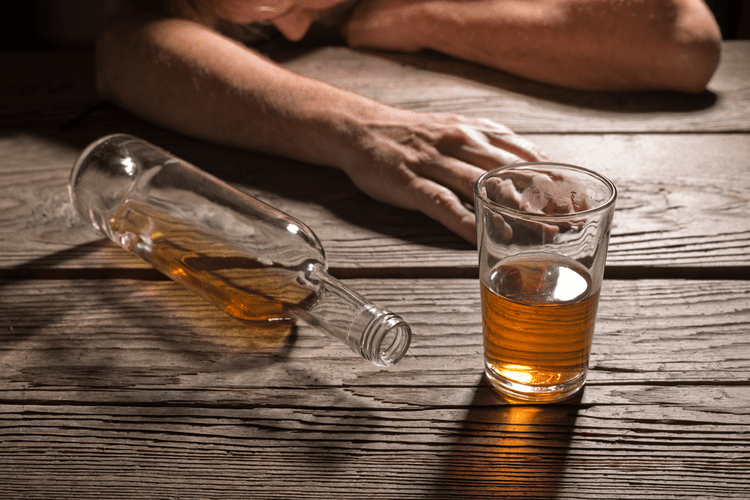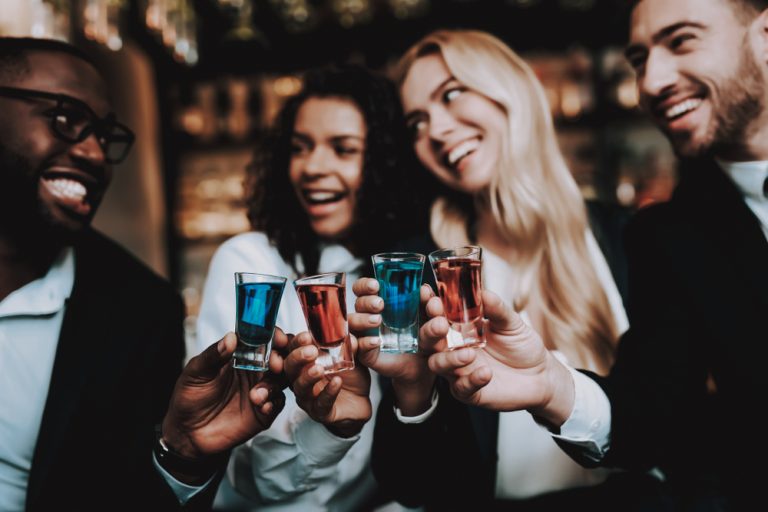Symptoms typically begin within six to 24 hours of stopping or reducing alcohol consumption, with mild symptoms such as headaches, anxiety, and insomnia appearing first. Symptoms tend to intensify and become more pronounced over time, peaking between 24 and 72 hours after the last drink. Red wine is the most commonly reported alcoholic drink to trigger headaches and migraines, with white wine, champagne, and beer also frequently reported.

How to avoid or treat alcohol-related headaches
- Sign up for our Health Tip of the Day newsletter, and receive daily tips that will help you live your healthiest life.
- When someone has been drinking regularly and chooses to quit, alcohol withdrawal can result in a series of uncomfortable symptoms, and some of them can put a person’s health at risk.
- Alcohol acts as a diuretic, causing increased urination and subsequent dehydration, which can lead to a headache.
- It can happen even if you drink less than people who don’t get migraine headaches.
- Sweeteners mask their flavors, so it’s easier to keep drinking them.
The strongest effect is produced by dark-colored alcohols like red wine, beer, rum, etc. Whereas the other alcohols cause headaches equally or more frequently. Since alcohol has a dehydrating effect, drinking 16 ounces of water between each alcoholic beverage can help offset alcohol-related dehydration. Drinks that include electrolytes, such as sports drinks, can help replace the electrolytes you lose from the diuretic effects of alcohol. Ethanol is also a diuretic, meaning it increases urination, which then leads to electrolyte loss and dehydration. Dehydration causes brain cells to contract temporarily, also resulting in headaches. Ethanol is found in every alcoholic drink, and is a key reason why any form or amount of alcohol may contribute to headaches.

HEADACHES
Having a strong network of people who validate your experience and support you on the good days and bad is so valuable when you live with an invisible illness like migraine. If you’re interested in connecting with more people in the migraine community, we recommend joining our Facebook support group, Move Against Migraine. There, you will find a wonderful community of people who are ready to listen and lift each other up. Migraine is a disabling disease that alcohol headache no one should have to go through alone.
How Long Does Alcohol Stay in Your Body?
Consuming plenty of nutrient-rich foods can help stabilize blood sugar levels, reducing headaches. Magnesium deficiency is a common cause of persistent headaches; eating nuts and seeds can boost the level of this nutrient in your drug addiction treatment body. Alternatively, yogurt hydrates your body and can help with nausea by promoting gut health. Do your best to avoid common headache triggers like processed foods. Another reason that headaches will frequently develop following alcohol consumption, as well as during alcohol withdrawal, is due to dehydration .

People who are daily or heavy drinkers may need medical support to quit. Stopping drinking abruptly can lead to seizures and can even be fatal. For most https://c2.promediamogul.co.za/good-nutrition-for-sobriety-and-long-term-recovery-2/ people, alcohol withdrawal symptoms will begin to subside after 72 hours.
- Hangover headaches are common enough, but they can have an impact on daily life.
- Record any symptoms that occur after consuming alcohol and discuss them with your doctor.
Alcohol affects the body’s ability to regulate blood sugar, leading to headaches
If you are still experiencing withdrawal symptoms after three days, talk to your healthcare provider. If you or someone you know is struggling to detox because of potential alcohol withdrawal symptoms, contact Asheville Detox Center. Our detox center is the perfect place to safely and comfortably overcome the stress and symptoms of alcohol withdrawal. Clients are monitored by professional detox staff who ensure the entire process is comfortable, safe, and effective. Call today, and one of our admissions agents can help you get started on the path to detox and recovery.
Congeners have been linked to headaches, even in small amounts, and can trigger migraines in certain individuals. Unfortunately, these mitigation strategies don’t apply universally. Further, if quercetin contributes to headaches with red wine, it may not be the only factor that does so.
Alcohol can trigger headaches in some people due to sensitivity to specific ingredients, such as congeners, histamines, and tyramine, found in certain alcoholic drinks. Additionally, body weight, genetic factors, and individual differences in brain receptors may also play a role in alcohol-induced headaches. Alcohol withdrawal headaches and hangover headaches are very similar in terms of intensity.
In addition to these factors, there are some individuals who are more predisposed to experience headaches during alcohol withdrawal due to a series of genetic factors. This might include a history of chronic migraines, personal sensitivity to changes in brain chemistry, or a series of other pre-existing conditions that will vary from person to person. Understanding these interconnected physiological and neurological mechanisms provides insights into why headaches are a prevalent symptom during alcohol withdrawal. Headaches will often develop during alcohol withdrawal as a result of neurochemical changes. This is because prolonged alcohol consumption alters neurotransmitter levels in the brain, particularly affecting gamma-aminobutyric acid, which is commonly referred to as GABA, as well as glutamate. When alcohol intake suddenly stops, there is a sharp rebound effect, which leads to increased excitability in the brain.
Resting in a quiet, dark room can aid the body’s recovery and lessen the intensity of the headache. These headaches can last for up to 72 hours after drinking and can affect anyone, regardless of age or background. I would say in the course of about a year I have had 2-3 earth shattering migraines after drinking beer. In my college days I would never get migraines just the occasional hangover headache which goes away after taking some IB-profen. Last night I went to a poker game at a friends house and drank about 4-5 light beers.
Also, follow your doctor’s recommendations regarding alcohol consumption. For some people that also includes alcohol, maybe just certain kinds. National Library of Medicine, one-third of migraine sufferers point to alcohol as a trigger. Over the years, research has shown that moderate alcohol consumption may provide health benefits over total abstinence. In spite of this, there are some people for whom combining alcohol with a tendency toward migraines. Patients often make this decision after experiencing a strong connection between alcohol and migraines firsthand.

